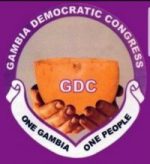Vision:
Our vision is to transform the Gambia into a modern, sustainable economy through pro-poor growth initiatives to improve our quality of life by harnessing public, and private sector investments in all areas, including in tangible and intangible sectors.
Mission:
Our success will be measured by the number of people out of the dynamics of poverty namely; Increase access to quality Education and Healthcare, eliminate hunger through mechanisation in agriculture and food processing, reduce unemployment, increase incomes, a modern social housing scheme with an urban structure, public transport system and self-esteem.
Policies:
The Gambia is one of the poorest countries in the World. About 60% or more lives in three coastal regions, and the numbers are likely to continue to rise. This has implications for the economic and social structure, and the concentration of economic activities (formal and informal), as well as social and public health issues.
Therefore, the Gambia has the following two options to determine its future economic structure and concentration, and the nature of social provisions:
- Create one mega city (given its small size) to cater for the entire population with services and manufacturing zones and use the rest of the land for the other economic activities. This could save some cost in the provision of basic services and amenities and reduce climate change. However, in the long term, overcrowding could pose more challenges if it is not effectively managed, or
- To redevelop and create new settlements with modern urban structure as the most feasible option. This will reduce rural-urban migration and their associated pressures.
Both scenarios have the potential to reshape the economic and social structure of the Gambia, and spur economic activities by pulling people together to create sustainable markets. A GDC government will liaise with all stakeholders including the opposition parties, local authorities and the wider community to gain consensus into the type of economic and social structure we want now, and for the future generation. Without such policy orientations, it will be difficult to achieve sustainable development that benefits everyone.
Programmes:
The GDC wants the Gambia to be the best place to live and invest. This can only be achieved with comprehensive programmes that will address the short, medium, and long-term needs of the country. Our economic transformation and restructuring will require investment in the planned sector reforms, including.
- To create Agribusiness and Agro-Based Industries with mechanisation in order to increase production and productivity to eliminate hunger, make work pay in the sector, and expand our exports.
- Manufacturing of some products by creating a supply chain that links the necessary sectors from producer to consumer. This will include food and textile processing plants.
- Build more schools and hospitals and improve training and development.
- Invest in telecommunication technology
- Promote the Gambia as a safe and affordable tourist destination
- Involve more Gambian youths and women in the fisheries industry through further training and resource provisions.
- Involve more Gambian youths and women into the other productive sectors.
- Social housing with urban structure (water, energy, sewage and drainage systems, efficient waste collection, and paved roads).
- A public transport system that links towns/cities, and a haulage supply chain.
- Green energy to meet households and industrial needs of a modern society.
- The strategic infrastructure necessary to promote industrial development.
